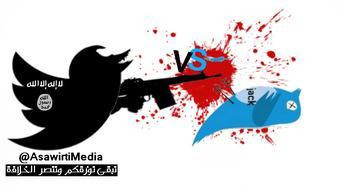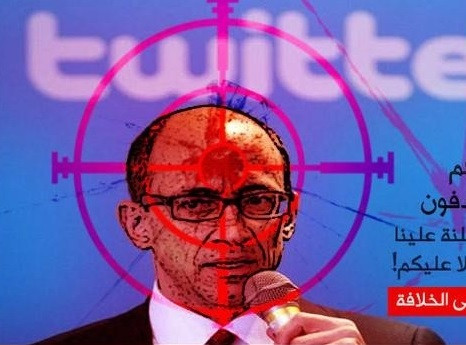Isis v Twitter: Jack Dorsey threats show social media is both strength and weakness for jihadists

Recent threats to Twitter's top executives made by a pro-Islamic State (Isis) media group are the latest instances of a long-lingering threat: jihadism on social media.
In a 1 March message, al-Nusra al-Maqdisiya, a well-known pro-IS media group, threatened Twitter founder Jack Dorsey for the platform's suspension of numerous accounts of jihadist fighters and supporters. The message, posted to JustPasteIt.it, was a collection of previously published tweets and was, ironically, distributed on Twitter.
The posting condemned the company for entering a "failed war" with IS and then addressed Dorsey directly, stating that he and his employees had become an "official target" for the group.
'How will you, O Jack, protect your lost employees when their necks become an official target for the soldiers of the Caliphate and its supporters who are scattered around your backs! What will their families and sons answer, and you had implicated them in this failed war?!'
The message also invoked Paris lone wolves Amedy Coulibaly and the Kouachi brothers, along with Danish lone wolf attacker Omar Hussein, proposing afterward:
'Imagine the scene... while one of the employees of Twitter is outside a bar in the neighborhood, staggering, loitering from drunkenness, and the deep darkness, a lone wolf lies in wait in the darkness and he attacks him and slits his throat. What is to hold him back?'

Naturally, Twitter took down the group's account once again. Shortly after, though, on 2 March, the group resurfaced with a new account. Continuing with its threats, it tweeted a picture of Twitter CEO Dick Costolo as a target, stating in part: "Your war against us will flip with bad consequences against you."
These threatening statements against Twitter echo a campaign started by the group back in September. Using the hashtag "#Thought_of_a_Lone_Lion," al-Nusra al-Maqdisiya threatened the company by calling for the "targeting [of] its employees directly through physically eliminating them." What entailed was a series of suspensions and sneaky account reboots under different handles — none of which stopped the messages being retweeted and reaching thousands of users.
What should we do?
Al-Nusra al-Maqdisiya's threats raise an important question: What should the proper response be? Typically, high-profile targets are listed in official jihadist publications—most prominently al-Qaeda in the Arabian Peninsula's (AQAP) magazine, Inspire, and that of IS, Dabiq. Individuals who have been targeted by these groups have included Charlie Hebdo Editor Stéphane Charbonnier and Swedish artist Lars Vilks.
Unofficial groups like al-Nusra al-Maqdisiya do hold sway in the jihadist movement, though. IS benefits greatly from followers and unofficial media groups at the grassroots level as they help disperse its releases and messages across the internet. At least a dozen additional groups, including al-Nusra al-Maqdisiya, exist on Twitter to assist IS's widespread media infrastructure.
This is why many unofficial accounts have shown the same persistence as al-Nusra al-Maqdisiya in regenerating after suspension. For example, I recently reported on Aswarti Media, which celebrated the creation of its 100<sup>th account two days ago - to widespread celebration among jihadists on Twitter.
This celebration was promoted by IS-linked accounts, which used the story to motivate their followers to stay determined against Twitter's crackdowns.
Clearly, these threats are essentially an attention-grabbing media campaign. However, the repeated calls from IS (and AQ) leadership for lone wolf attacks, along with the disquieting ease of committing such attacks, should not be overlooked. It takes only one person to answer such a call for attack.
Instead of panicking about such threats, it is important to understand that the internet is a vital front of an existential battleground for jihadists; social media and smart phones have become a valuable weapon and fuel for IS—crucial for its survival. Al-Nusra al-Maqdisiya threatened Twitter because social media is both its strength and weakness.
Rita Katz is executive director of the SITE intelligence group (www.siteintelgroup.com). She has been monitoring terrorist activity and Jihad for more than a decade.
You can find her on Twitter @rita_katz.
© Copyright IBTimes 2024. All rights reserved.






















